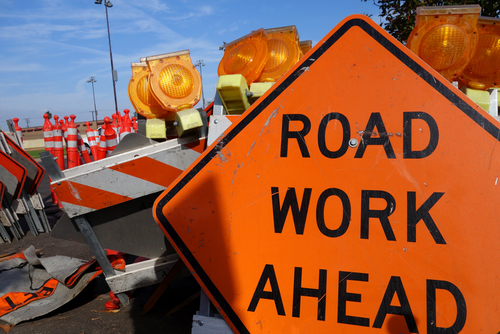
U.S. Sen. John Barrasso. (R-WY), chairman of the Senate Environment and Public Works Committee, urged support on Wednesday for making a historic investment in the nation’s roads by passing the America’s Transportation Infrastructure Act.
“Americans don’t agree on much these days but [they] care about the nation’s roads, the nation’s bridges, the nation’s highway system,” Barrasso said in remarks to the attendees at the American Association of State Highway and Transportation Officials (AASHTO) Washington Briefing 2020. “It’s an essential part of everyday life.”
If passed, the bipartisan-supported bill would authorize $287 billion over five years to repair America’s roads and bridges. That is a 27 percent increase above the FAST Act allocations and would benefit safety, environmental concerns and the economy.
The legislation passed the Senate Environment and Public Works Committee last July in a unanimous vote.
Barrasso underscored the critical role America’s roadways and transportation infrastructure plays in everyday life. More than 49 million tons of freight is shipped on American roads each day, he said, referencing a 2015 report.
“Those numbers are only going up,” he said. “And decades of stress and wear-and-tear have taken a significant toll on our highways.”
Also, poor infrastructure creates urban congestion that costs commuters $179 billion in wasted fuel and time, he said, citing a 2017 report. That equals an annual waste of 54 hours and $1,000 in fuel for each commuter each year, he said.
Rural communities are also impacted by deteriorating infrastructure, particularly regarding 47,000 bridges in poor condition. Those bridges are essential for many reasons, including the transportation of goods throughout the United States, he said.
“The bill is the right medicine to cut red tape, speed construction and make roads safer [in both] urban and rural communities,” he said.
House Transportation and Infrastructure Committee Chairman Peter A. DeFazio (D-OR) agreed that a transportation funding overhaul is needed but concluded that the Transportation Infrastructure Act of 2019 doesn’t go far enough to curb carbon emissions.
DeFazio devised a “transformative” infrastructure bill that will take on carbon emissions and other environmental challenges, including the use of renewable fuels in airlines.
“Things are morphing and changing. We can’t anticipate everything, but we can set a path and that’s what I intend to do with this bill,” he said. “We have to move away from fossil fuels. If you don’t believe in climate change, though, tough, it’s here and it’s traumatic.”
The bill Barrasso supports, which DeFazio said funds modest environmental protections, would ensure states quickly receive needed monies.
Barrasso cited a Wyoming highway project that took months to build but involved more than 10 years’ worth of negotiations to acquire the needed permits. Such delays are unacceptable, he said.
The bill would not only restore the transportation infrastructure but prevent pedestrian and wildlife deaths, save money by building durable, long-lasting and environmentally friendly highways and reduce emissions.
U.S. Rep. Rodney Davis (R-IL), ranking member of the Subcommittee on Highways and Transit, praised the Senate’s work on the transportation bill, underscoring that all political parties agree on its need.
“The Senate did their job. They passed an authorizing bill. We like to see that,” he said. “Will we agree with everything in it? Probably not. But the sheer fact that they got one done gives us hope in the House that we can do that.”
Davis said more funding is needed to reach goals. He noted that as electric vehicles become more commonplace, their owners must financially contribute to infrastructure. All of the money for improvements cannot come from gas taxes, he said.
“You’ve got to pay,” he said. “Why do I want to make sure electric vehicles begin to pay into the trust fund? It makes the trust fund less volatile.”
He added that showing taxpayers how such payments improve their communities will counter resistance.
“Constituents don’t care if you are Republican like me or a Democrat or an Independent or whomever [if you show] a good use of your tax dollars. That’s what we can do.”
During his recent State of the Union address, President Donald Trump called on Congress to pass the Senate bill.
Because the Environment and Public Works Committee does not have jurisdiction over the revenues for the highway bill, Barrasso has said he is working with Senate Finance Committee Chairman Chuck Grassley (R-IA) to make sure the legislation is paid for.
“We are asking for continued support,” said Barrasso. “Let’s send this to [Trump’s] desk. He is ready to sign it.”